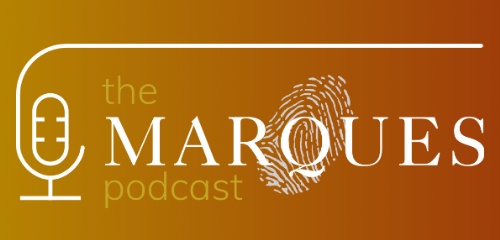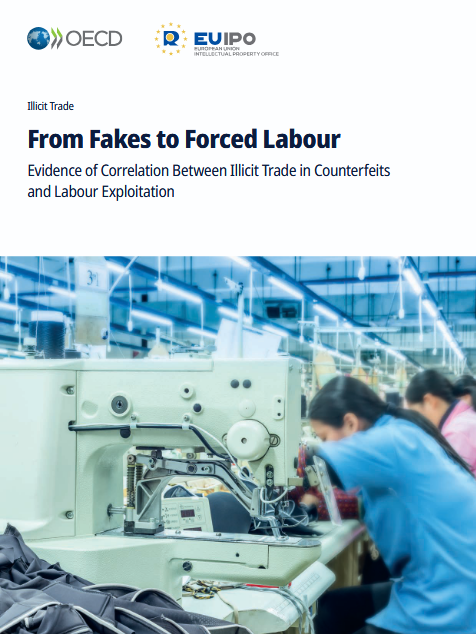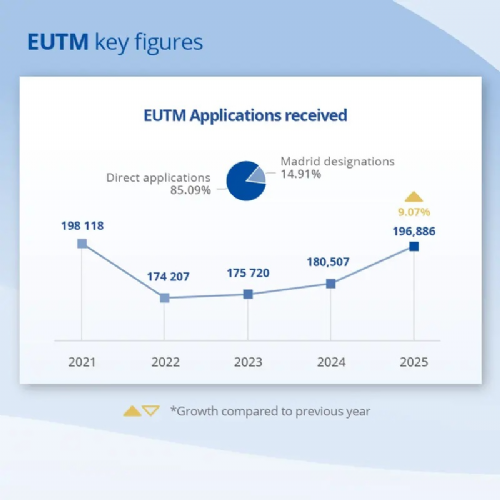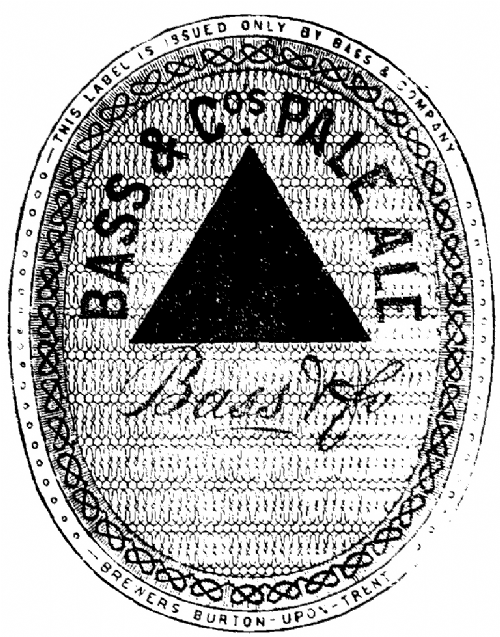Now in its twelfth year, Class 46 is dedicated to European trade mark law and practice. This weblog is written by a team of enthusiasts who want to spread the word and share their thoughts with others.
Click here subscribe for free.
Who we all are...
MARQUES SRO chart updated
The MARQUES Unfair Competition Team has added two reports to its chart on self-regulatory organisations (SROs).
The new reports cover Belgium and Argentina. They have been written by Team members Jeroen Muyldermans from Fencer and Martin Chajchir from Marval O’Farrell & Mairal respectively.
The chart now covers 12 countries in total: Argentina, Belgium, Brazil, Finland, France, Germany, Italy, Portugal, Sweden, Switzerland, Turkey and USA.
Further countries are expected to be added soon.
The purpose of the chart is to provide corporate lawyers, attorneys and others with a practical and user-friendly overview of SROs for advertising and unfair competition matters operating in various jurisdictions with general powers over the full spectrum (or a broad range) of industries.
The leader of this project is Cyrill Rieder of Fuhrer Marbach in Switzerland, who is a member of the Team.
MARQUES members can view the updated chart on the Team’s page on the website (MARQUES log-in required).
Posted by: Blog Administrator @ 14.23Tags: SRO, unfair competition,


 Sharing on Social Media? Use the link below...
Sharing on Social Media? Use the link below...Perm-A-Link: https://www.marques.org/blogs/class46?XID=BHA5419
New podcast on UDRP reform
 Episode 31 of the Talking MARQUES podcast is now available on the MARQUES website and on Spotify.
Episode 31 of the Talking MARQUES podcast is now available on the MARQUES website and on Spotify.
This episode covers the review of the Uniform Domain Name Dispute Resolution Policy (UDRP).
Last year, WIPO and the Internet Commerce Association (ICA) published their final report and recommendations on reforms to the UDRP.
In this podcast, Brian Beckham, Head of the Internet Dispute Resolution section of the WIPO Arbitration and Mediation Center, and Zak Muscovitch, General Counsel of ICA, set out the key recommendations in the report.
They also describe the process that led to its publication and what is likely to happen next.
Also taking part in the podcast are Fabrice Bircker, a trademark and design attorney with Plasseraud IP in France, and Clare Speed, a trade mark attorney at Reckitt Group in the UK. Both are members of the MARQUES Cyberspace Team.
Fabrice and Clare talk in particular about the UDRP reforms that MARQUES would like to see, the emerging challenges that brand owners face and what further actions the Cyberspace Team plans.
You can listen to all episodes of the podcast on the MARQUES website here, or search for “Talking MARQUES” on Spotify.
Further episodes of the podcast are being planned for later this year.
Read more about the WIPO/ICA report in this post on the Class 46 blog (9 December 2025).
Posted by: Blog Administrator @ 16.15Tags: UDRP, WIPO, ICA, Cyberspace,


 Sharing on Social Media? Use the link below...
Sharing on Social Media? Use the link below...Perm-A-Link: https://www.marques.org/blogs/class46?XID=BHA5418
Report shows links between counterfeits and forced labour
 A new report by the EUIPO and OECD provides evidence of the correlation between illicit trade in counterfeits and labour exploitation.
A new report by the EUIPO and OECD provides evidence of the correlation between illicit trade in counterfeits and labour exploitation.
The report, “From Fakes to Forced Labour” was published on 20 January and is available on EUIPO’s website here (PDF). EUIPO also hosted a webinar on the topic, which can be viewed here.
The report is based on descriptive evidence, correlation analysis and econometric modelling. It found that: “Countries more frequently identified as sources of counterfeit goods tend to display higher levels of child labour – including hazardous forms – , greater prevalence of informal employment, longer working hours, weaker labour protections, and higher incidence of fatal occupational injuries. Positive correlations also emerge between the value of counterfeit exports and the prevalence of forced labour.”
Econometric modelling suggests that a one-percentage-point increase in the prevalence of forced labour is associated with an estimated 0.0076% increase in the value of counterfeit trade.
The report makes a number of policy directions, including:
- combining strengthened labour protections,
- enhanced trade-enforcement tools,
- improved data availability, and
- responsible business conduct.
It states: “Understanding and acting on the labour-abuse component of trade in counterfeits is crucial not only for worker protection and market integrity, but also for undermining the criminal groups that profit from it.”
The MARQUES Anti-Counterfeiting and Parallel Trade Team is studying the report and may provide further analysis soon.
The picture shows the cover of the report.
Posted by: Blog Administrator @ 09.31Tags: EUIPO, OECD, forced labour, counterfeits,


 Sharing on Social Media? Use the link below...
Sharing on Social Media? Use the link below...Perm-A-Link: https://www.marques.org/blogs/class46?XID=BHA5417
EUTM applications increase by 9%
 The EUIPO received 196,886 EUTM applications in 2025, an increase of 9.07% on 2024, according to figures published by the Office this week.
The EUIPO received 196,886 EUTM applications in 2025, an increase of 9.07% on 2024, according to figures published by the Office this week.
85.09% of the applications were direct applications, with Madrid designations making up 14.91%.
EU Member States accounted for 57.5% of applications. The top countries of origin of applications worldwide were:
| Country | Number |
|---|---|
| China | 31,265 |
| Germany | 24,988 |
| USA | 17,715 |
| Italy | 13,502 |
| Spain | 12,686 |
| France | 9,177 |
| UK | 8,411 |
| Poland | 7,826 |
| Netherlands | 7,179 |
Applications from China grew by 13.3%, while those from the EU increased by 9.4%. Among EU countries, there was significant growth in the Netherlands, Austria, Germany and Poland.
The top classes were:
| Class | Nnumber |
|---|---|
| 35 | 37,251 |
| 09 | 31,387 |
| 42 | 26,038 |
| 41 | 22,653 |
| 25 | 13,405 |
| 05 | 11,660 |
| 03 | 10,856 |
| 37 | 8,577 |
| 16 | 8,388 |
| 36 | 8,223 |
Read more on EUIPO’s website here, from where the above chart is taken.
Posted by: Blog Administrator @ 09.01Tags: EUTM, EUIPO, Madrid designations,


 Sharing on Social Media? Use the link below...
Sharing on Social Media? Use the link below...Perm-A-Link: https://www.marques.org/blogs/class46?XID=BHA5416
Vote for most iconic UK trade mark
 To mark the 150th anniversary of the UK trade mark registry on 1 January 2026, the UK IPO is asking users to vote for the most iconic registered mark.
To mark the 150th anniversary of the UK trade mark registry on 1 January 2026, the UK IPO is asking users to vote for the most iconic registered mark.
The first mark to be registered in the UK was filed by brewer Bass (UK00000000001, pictured) on 1 January 1876. Today, there are more than 2.5 million marks protected in the country.
You can vote for the most iconic trade mark on the UKIPO website here. Voting closes on 31 January 2026. The mark can be a registered logo, brand name, colour, sound or motion mark.
The UKIPO invites you to say what the chosen trade mark is special to you and what you think makes an iconic trade mark stand out from the rest.
Posted by: Blog Administrator @ 13.56Tags: UKIPO, Bass, iconic trade mark,


 Sharing on Social Media? Use the link below...
Sharing on Social Media? Use the link below...Perm-A-Link: https://www.marques.org/blogs/class46?XID=BHA5415
Grenada joins Madrid System
 WIPO has confirmed that the government of Grenada deposited its instrument of accession to the Madrid Protocol on 15 December 2025.
WIPO has confirmed that the government of Grenada deposited its instrument of accession to the Madrid Protocol on 15 December 2025.
The Madrid Protocol will enter into force in Grenada on 15 March 2026.
The country becomes the 116th member of the Madrid System and the 10th in Latin America and the Caribbean. The international trade mark system now covers 132 countries in total.
WIPO will announce further information about specific declarations regarding time limits and applicable fees soon.
Grenada is an island country in the Windward Islands, known as the “Island of Spice”. According to Wikipedia, it had an estimated population of 114,621 in 2024 and a per capita GDP (PPP) of $20,195 in 2023.
Its main industries include tourism and agriculture (particularly the production and export of nutmeg, rum and chocolate). Popular sports include athletics, cricket and football.
Read more on WIPO's website here.
Posted by: Blog Administrator @ 09.06Tags: Madrid System, WIPO, Grenada,


 Sharing on Social Media? Use the link below...
Sharing on Social Media? Use the link below...Perm-A-Link: https://www.marques.org/blogs/class46?XID=BHA5414
Season’s Greetings
 MARQUES wishes all our members, their colleagues and families, as well as all readers of the Class 46 blog, a Merry Christmas and Happy New Year!
MARQUES wishes all our members, their colleagues and families, as well as all readers of the Class 46 blog, a Merry Christmas and Happy New Year!
During the festive period, you can continue to engage with MARQUES on social media and view the resources on the website.
Please note however that the MARQUES Secretariat will close after business hours on 23rd December and reopen on Monday 5th January.
Any communications received during the festive period will be actioned after 5th January.
MARQUES has big plans for 2026, including the 40th Annual Conference, in Lisbon in September, and the first Design Symposium, in Frankfurt in January. View the events page to find out more.
We look forward to seeing members at these and other events during the year.
Picture created by MARQUES
Posted by: Blog Administrator @ 11.45Tags: Christmas, New Year, Lisbon, ,


 Sharing on Social Media? Use the link below...
Sharing on Social Media? Use the link below...Perm-A-Link: https://www.marques.org/blogs/class46?XID=BHA5413

